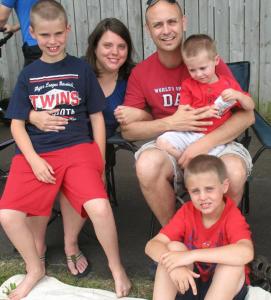NEW YORK — In a world flush with free information, some young people are still willing to shell out for news they read.

© 2013 Esther Vargas, Flickr | CC-BY-SA | via Wylio
A recent poll shows that 40 percent of U.S. adults ages 18-34 pay for at least some of the news they read, whether it’s a print newspaper, a digital news app or an e-mail newsletter. Another 13 percent don’t pay themselves but rely on someone else’s subscription, according to the survey by Media Insight Project, a collaboration of the American Press Institute and the Associated Press–NORC Center for Public Affairs Research. Older Millennials are more likely than younger ones to personally pay for news.
Here are some points to consider:
- “The proliferation of free news online and new ways for advertisers to reach people has besieged publishers of newspapers and magazines.”
- “Some popular news sites, particularly newer online-only outlets like Huffington Post and BuzzFeed, remain free to all.”
- “Millennials have shown that they are willing to engage in content that interests them,” Herndon said (a professor of journalism).
What does this mean for the church?
- Brand is often more important than price. Millennials who are willing to pay money for news know how to obtain this same news for free from other sources. These Millennials are interested in a specific perspective or “brand” of news.
- Many churches spend resources on their on-line presence without examining the results of that work. Does your church know who is utilizing your electronic media? Many churches have gone with current technologies, but the content does interest Millennials (for various reasons).
- I believe their willingness to pay for digital news is driven by their value of conservation of natural resources and their technology-driven lifestyle. In the church world, the paper bulletin still reigns, but even its days may be coming to an end.
Dr. G. David Boyd is the Founder and Managing Director of EA Resources.













 I had rehearsed what I was going to say and had a response for each of the objections I was sure my pastor would enumerate. I waited until the waitress brought us our coffee, and then I began to share a bit of my heart with this man who had watched me grow up and in recent years had become more of a mentor.
I had rehearsed what I was going to say and had a response for each of the objections I was sure my pastor would enumerate. I waited until the waitress brought us our coffee, and then I began to share a bit of my heart with this man who had watched me grow up and in recent years had become more of a mentor. 







 Dr. G. David Boyd is the Founder and Managing Director of EA Resources. If he can help you and your community understand the needs and beliefs of emerging adults, please contact him at gdavid@earesources.org.
Dr. G. David Boyd is the Founder and Managing Director of EA Resources. If he can help you and your community understand the needs and beliefs of emerging adults, please contact him at gdavid@earesources.org.